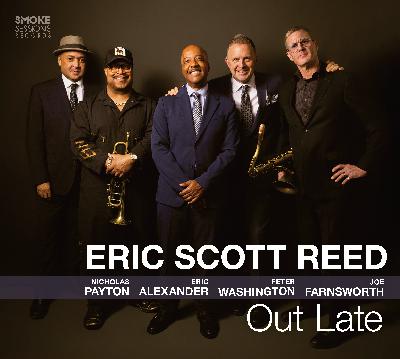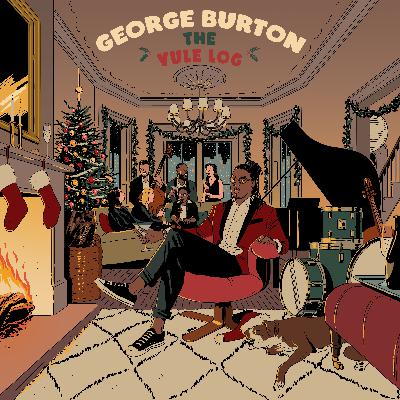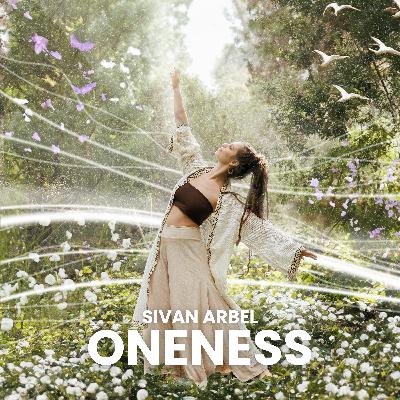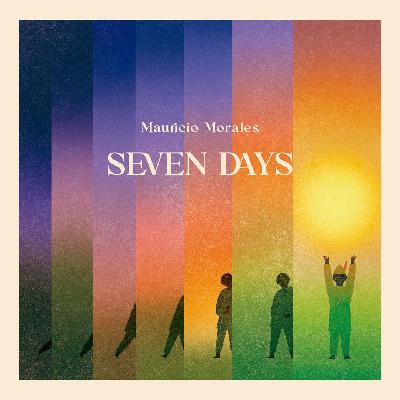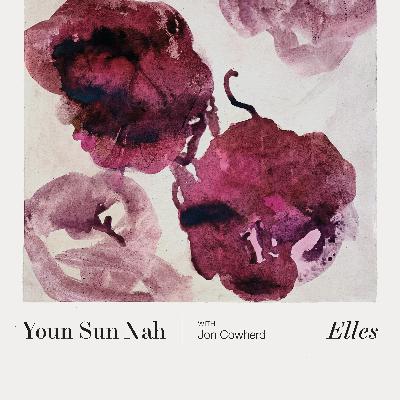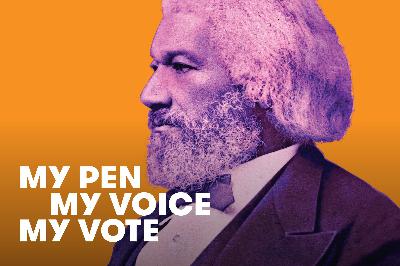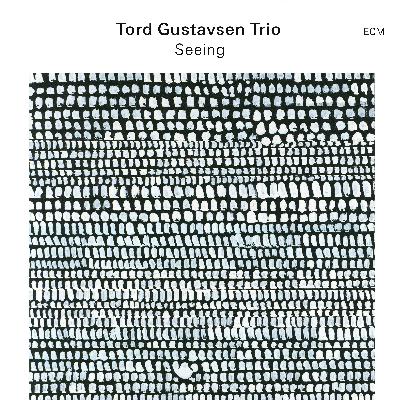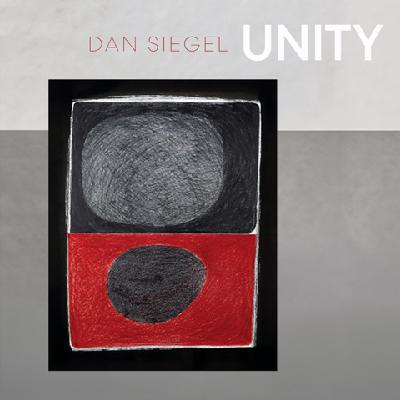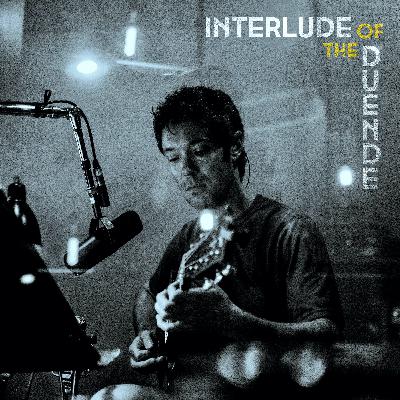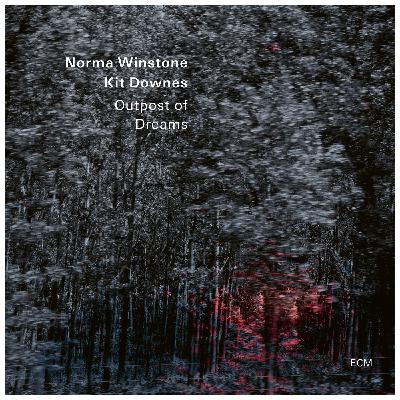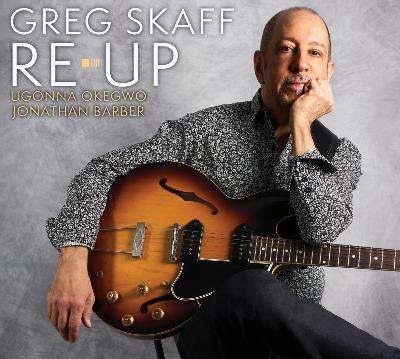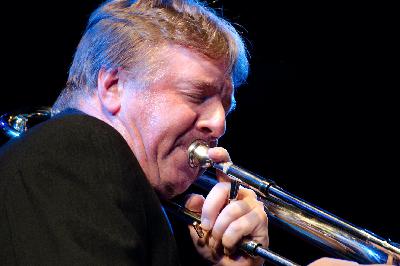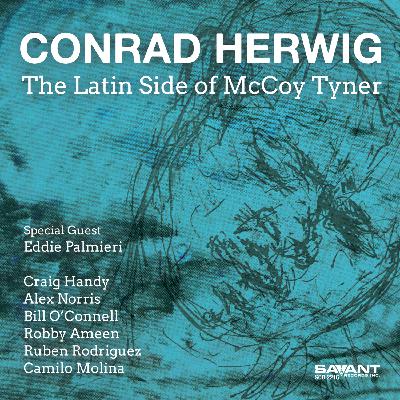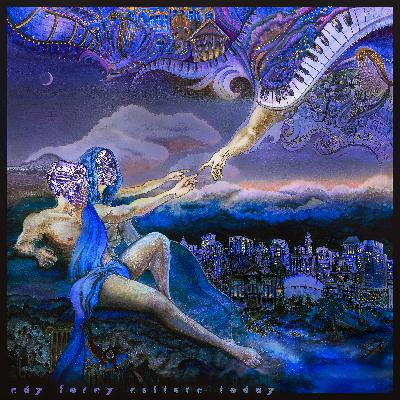Discover Straight No Chaser - A Jazz Show
Straight No Chaser - A Jazz Show

995 Episodes
Reverse
There's a new sponsor for the first big jazz festival of the season, but the same great music as always seems to be ready to go. The 2025 Saratoga Jazz Festival is sponsored by GE Vernova, and is scheduled for June 28-29 on the scenic grounds of Saratoga Performing Arts Center (SPAC). As always, the range of talent is broad, from the blues (Gary Clark Jr.) to the great vocalists of today and tomorrow (Gregory Porter, Cassandra Wilson, Veronica Swift, Nicole Zuraitis) to certified jazz legends (Al DiMeola, Gary Bartz, Kenny Garrett) to successful crossover acts (Lettuce, Trombone Shorty). Click here for a full list of artists on the Main Stage and more intimate Charles R, Wood Discovery Stage. As always, producer Danny Melnick joined me to discuss the festival and give some insight into how the event is structured and how it takes place, as well as the skinny on which artists to catch. Danny has been graciously joining me for podcast conversations since 2011, and its always a pleasure to speak with him. Besides all the great music, the festival has continually upgraded its facilities, and has a juried art and craft fair, terrific restaurant-quality food and grounds to explore. "The Hang" is one of the great weekends of each summer, so be sure to put it on your calendar. Musical selections include the title track from NEA Jazz Master Kenny Garrett's Do Your Dance album and "Skylark" from Cassandra Wilson's Grammy winning New Moon Daughter album, which will celebrate its 30th anniversary at the festival in an exclusive New York performance.
Sometimes jazz musicians get their big breaks at school, and others from mentors on the bandstand. And others…from their job in land use regulation? Such is the case for singer Susan Hinkson, whose debut album Just In Time (on windfall creations, LLC) is a spirited romp through the Great American Songbook. For years Susan was a regulator and policy maker for architectural real estate both for the city of New York and as the managing member in the Capalino Ventures, LLC urban strategy firm. Among those with whom she worked closely was Richard Barth, the touchstone of regulatory real estate land use, who introduced her to his brother Bruce. Straight No Chaser fans are well-acquainted with pianist Bruce Barth, an important part of the New York jazz scene for decades. Ms. Hinkson has an expansive knowledge of showtunes, immersed in the music by a mother who was a musical arranger on Broadway. Together they listened to the storied Make Believe Ballroom radio show on WNEW-FM that played all the popular songs of earlier years. So when she met Bruce Barth to talk about voice lessons, the two knew they had a deep sense of musical commonality. Fast-forward to the present, and the result is Just In Time . The album features Barth on piano in a superb New York quintet comprising alto saxophonist Steve Wilson, bassist Vicente Archer and drummer Adam Cruz. Susan digs deep for some lesser recorded runes like the Rodgers/Hammerstein tune “This Nearly Was Mine” from South Pacific, as well as better known classics like the title track, “My Funny Valentine,” and “It Might as Well Be Spring.” With a nod to her favorite singers, she delivers a fun version of Blossom Dearie’s “Rhode Island Is Famous For You,” and goes against type with female-centric versions of “The Best is Yet to Come” and “One for My Baby (and One More for the Road).” Podcast 996 is my conversation with Susan, as we discuss her late start in recording and her attraction to “boy songs” in choosing repertoire. The podcast features her versions of “The Best is Yet to Come,” and "Thus Nearly Was Mine."
You don’t judge a book by it’s cover, and you don’t judge a band by its name. Toronto-based Shuffle Demons may sound like a retro-blues band, but in fact the sounds they have captured on their latest album, Are You Really Real? (Alma/Universal ) don’t easily get categorized. There’s the jazz-funk of “X Marks The Spot,” swinging “Good Mourning,” and more intricate “Ride the Wave” among a set of tunes heavy in high-energy improvisation. The band presents a unique lineup of instrumentation featuring Richard Underhill (alto and baritone sax), Kelly Jefferson and Matt Lagan (tenor sax), Mike Downes (electric and acoustic bass) and drummer Stich Wynston. The result is an always interesting listen that will hit both your mind and bottom. Richard and Stich joined me for our conversation, as we followed the band’s history from busking on the streets of Toronto forty years ago, to personnel changes which shifted the band’s core sound, to today’s ensemble. Aided by the Canada Council for the Arts, the band has been able to record and release albums that try – and even succeed – to capture the energy of their live shows. Musical selections include “Good Mourning" and "Scala Rosa."
I last caught up with pianist Eric Reed almost two years ago, as he marked the release of his fine tribute album Black, Brown and Blue (Smoke Sessions Records). He returns to original music with his full name on the album Out Late (Smoke Sessions Records), buoyed by a killer band featuring trumpeter Nicholas Payton, tenor saxophonist Eric Alexander, bassist Peter Washington, and drummer Joe Farnsworth. This stellar quintet’s members share deep histories with one another as well as with the l+abel’s namesake Manhattan club. So it seemed natural when Reed wanted to record a new batch of tunes in an “old school” style that they would record on an empty Smoke club’s stage. Out Late was recorded live, with only one take for each tune, and the musicians free of headphones or barriers. The result is a highly satisfying collection that rivals anything Reed has previously released. Anyone who has followed Reed’s remarkable story in recent years will immediately catch the double meaning embedded in the title as well. Two years ago, Reed made the decision to exist openly in his sexuality, a decision that he feels has also led to a newfound openness and freedom in his musical life. A key member of bands led by Wynton Marsalis, Joe Henderson and Freddie Hubbard, Reed has been sharing his gospel-tinged sound with jazz listeners since he toured with Marsalis at the age of eighteen. He has almost an album a year over the past thirty-five years, including four album-length explorations of the music of Thelonious Monk. Podcast 994 is my conversation with Eric as he discusses his decision to make this record with no frills or overdubs, his love for his fellow musicians, and his current tour schedule, where he will perform tributes to two of his piano heroes, Oscar Peterson and Hampton Hawes. Musical selections include “Out Late."
There's a bumper crop of new Holiday Jazz out there folks, so i you are looking for last minute enjoyment for Christmas and Hanukkah (and all the rest of the seasonal celebrations) you can listen to Podcast 993, featuring: Nick Maclean - "Christmas Time is Here" from his single on Browntasauras Records Christian Sands - "Do You Hear What I Here" from Christmas Stories George Burt0n - "The Holly and the Ivy" from Yule Log Rich Wiley - "Silver Bells" from Boptism Christmas George Gee Swing Orchestra - "Winter Wonderland Mambo" from Winter Wonderland Band of Other Brothers - "Santa Claus is Coming to Town" from This Year at Christmas Mitchell Shiner Latin Vibes - "Hanukkah Oh Hanukkah" from Latkes Con Salsa Matt Wilson's Christmas Tree-O - "8 Little Candles" from Tree Jazz - The Shape of Christmas to Come Brownman & Cruzao - "Frosty El Cubano" from their single on Brownasauras Records Gregory Porter - "Christmas Will Really Be Christmas" from Christmas Wishes (Deluxe Edition) Tower of Power - "Santa Claus is Coming to Town" from It's Christmas Laila Biali - "Drifting Down Ice" from Wintersongs Donald Vega - "Auld Lang Syne" from All is Merry and Bright
At its heart, Oneness is Israeli-born vocalist/songwriter/arranger Sivan Arbel’s musical response to the divisions she sees in society. Seamlessly blending Eastern and Western influences, she invites listeners to embrace their cultural and ideological differences and yet recognize the universal connections that bind us all. A tall order in late 2024. Oneness echoes this hopeful idealism by envisioning what is possible. Growing up in an environment where diverse cultures coexisted fueled her lifelong curiosity and desire to explore and integrate different musical influences. As a follow-up to 2016’s Broken Lines and 2019’s Change of Light, which was selected as Best Vocal Disc of the year by Jazz2K, the album stands as a major statement from a developing artist. The concept for Oneness started to take shape in 2022, during a week-long residency at Avaloch Farm Music Institute in New Hampshire, where Arbel and her band -- pianist Nick Hetko, bassist Sam Weber, and drummer Evan Hyde -- were awarded a retreat. The resulting work was honed before live audiences before recording the music, bringing to fruition Arbel’s lifelong exploration of unity through diversity, drawing from her experiences both in Israel and Brooklyn. In Podcast 992, Sivan and I talk about the tunes on Oneness, from her own “Second Floor Beloved," a deeply moving narrative about a homeless man on the Tel Aviv boardwalk sung in Hebrew, to the classic Tears for Fears song "Everybody Wants to Rule the World." Her fresh, soulful interpretation of that iconic tune infuses her rhythmic and harmonic flair into a brand=new musical statement. Sivan Arbel will be presenting the album release show on December 18, 2024 at 8PM at the New York City club Nublu.
On its own merits, the music on Seven Days, Mauricio Morales’ latest album, speaks with a strong, persuasive creative voice. The respected bassist-composer-bandleader’s fourth album presents seven distinctive compositions for sextet, with sophisticated shifts in mood and musical structure. In a mode of decidedly modern jazz which also manages to be easy on the ear and heart, the music also benefits from bold, integrated playing and soloing by his young allies from both the east and west coasts--connections made when the Mexican Morales lived and studied in Boston before settling in his current adopted hometown of Los Angeles. Morales composed this body of work—the result of a self-driven challenge to write seven tunes in as many days--while literally stuck in his native Mexico due to a mysterious Visa renewal snafu. Completing the challenge (barely, as you will hear him say) led to a live performance in Los Angeles, and following the urging of his bandmates to create a recorded version of the work, recorded entirely live over two days in the studio. Morales has been a rising force as player and bandleader/project-leader for the past several years, but his formative musical life goes back to his picking up the electric bass at 13 years old and the upright bass six years later. Working on the east coast scene after heading to Berklee School of Music in 2012, Morales migrated westward to Los Angeles in 2018. His diverse discography with the sometimes fusion-tinged tracks of 2021’s Luna, followed by the improvisation-leaning trio album Eclipse in 2022 and The Endless Ride last year. For the Seven Days project, Morales had bold and empathetic company in the band gathered to realize his vision—saxophonist Edmar Colón, guitarist Horace Bray, trombonist Ido Meshulam, pianist Luca Mendoza and dynamo drummer Jongkuk "JK" Kim. In Podcast 991, we discuss what Mauricio looks for in collaborators, the demands of daily composing and creation, and how he views Seven Days in the contet of his body of work.
With The Colors of My Life: A Cy Coleman Songbook, Manhattan Transfer founding member and Grammy Award-Winning vocalist Janis Siegel and acclaimed pianist/arranger/musical director Yaron Gershovsky, together have co-produced their first duo songbook album. And it comes from a classic “When a door closes, a window opens” moment. The Manhattan Transfer performed its final concert a year ago, bringing to a close one of the most storied chapters in vocal jazz history. With their scintillating live performances and memorable recordings, The Transfer bridged the gap from the fabulous four-part harmony groups of the thirties and forties and Lambert Hendrick & Ross to the 197u0’s, teaching late baby boomers how jazz singing should be done. Years earlier, Siegel and Gershovsky discovered that both had worked with the revered songwriter Cy Coleman – Gershovsky as the vocal arranger for the Tony Award-winning Broadway musical City of Angels, Siegel as part of the all-star vocal ensemble for Coleman’s final collaboration with lyricists Alan and Marilyn Bergman at the Kennedy Center. That conversation soon evolved into a full-fledged project: The Colors of My Life: A Cy Coleman Songbook on the Club44 label. It features the duo’s spirited interpretations of ten favorite Coleman compositions, pairing Siegel’s unmistakable voice with Gershovsky’s inventive music and vocal arrangements. The album boasts an elite roster of musicians including bassists David Finck and Boris Kozlov, drummer Cliff Almond, guest vocalist Aubrey Johnson, and The Crosby Street String Quartet. The alnum marks the first songbook album of Siegel’s diverse and prolific career, the first collection in her rich discography devoted to the work of a single composer. Beyond her ten Grammys with the Transfer, Janis has collaborated with pianists Fred Hersch, Edsel Gomez, Cedar Walton, Gil Goldstein, John di Martino, Addison Frei, and fellow vocalists including her former Transfer bandmate Laurel Massé, Lauren Kinhan of New York Voices, Bobby McFerrin, and Bob Dorough. Gershovsky is a highly accomplished, internationally recognized and award-winning pianist, arranger, composer and producer who has recorded and performed with such artists as Wayne Shorter, Pharoah Sanders, Lonnie Smith, Steve Gadd, Take 6 and the Count Basie Orchestra. His Broadway credits include vocal arranging for the Tony Award-nominated musicals Swing and City of Angels, and serving as keyboardist for Broadway megahits Les Miserables and The Phantom of the Opera. He has been the pianist and musical director for Manhattan Transfer since 1979, and is Janis’ first call collaborator. The repertoire on The Colors of My Life ranges from familiar standards to more obscure material. They range from the oft-performed “Witchcraft” and “The Best is Yet to Come,” to the previously unrecorded melancholy “Being Without You,” which Siegel took note of during that Kennedy Center workshop and always knew she’d return to. Podcast 990 is my conversation with Janis and Yaron, as they dissect the manner in which the Coleman tribute was prepared, what they find so moving about his work, and how best to bring freshness to well-loved standards. Musical selections include the silky slowed-down take on “Witchcraft,” and the afore mentioned “Being Without You.”
Long hailed for her style-blurring renditions of artists spanning Tom Waits and Jimi Hendrix to Marvin Gaye and Metallica, Elles sees Youn Sun Nah bringing her remarkable voice and unique perspective to a range of songs that have deeply fueled her own indescribable musical approach, all made famous by such iconic female artists as Björk, Sarah Vaughan, Grace Jones, Roberta Flack, Edith Piaf, Grace Slick, Maria João, and more. Recorded in New York City alongside acclaimed pianist Jon Cowherd (Brian Blade, Cassandra Wilson, Lizz Wright) and producer/musician Tomek Miernowski, Elles spans a wide array of songs either written or performed by notable women artists, from soulful spirituals (“Sometimes I Feel Like A Motherless Child”) and psychedelic milestones (“White Rabbit”) to long-overdue takes on “Feeling Good,” “My Funny Valentine,” “I’ve Seen That Face Before (Libertango)” and “Killing Me Softly With His Song.” Backed by Cowherd’s subtle yet inventive work on a variety of keyboards, Youn Sun Nah reimagines standards both old and new in typically captivating fashion, traversing gender and generation with precision, magic, and intimacy. Youn Sun Nah is among contemporary jazz’s most admired vocalists, an international award-winning singer, songwriter, and performer, hailed by The Guardian for her “seamless” movement “between impressionistic high drama, abstract improv, or a folk artist’s candid simplicity.” The Seoul, South Korea-based artist began her musical journey with piano lessons as a child before singing gospel with the Korean Symphony Orchestra as a teen. A career in musical theatre beckoned but Youn Sun Nah instead chose to pursue her own muse by attending Paris’ Institut National de Musique de Beauvais, Nadia and Lili Boulanger Conservatory, and the CIM, a school of jazz and contemporary music. Youn Sun Nah quickly affirmed herself as an exceptional vocal star, winning prizes at jazz festivals and competitions. In Podcast 989, Youn and I talk about how she chooses cover songs that she can inhabit with her own spirit and style, how she came to jazz late, and why she has constantly changed accompanists through her year long tour. Musical selections include “White Rabbit” and “Baltimore Oriole” from Elles, and “My Favorite Things” from her breakthrough album Same Girl.
No Cowards in Our Band is a musical drama telling the story of renowned activist and abolitionist Frederick Douglass (1818-1895) through his own words. With the performance just days before the 2024 Presidential Election, the piece is a striking reminder of the power of the pen, the voice, and the vote. Based on a libretto by Anthony Knight, Jr. and interwoven with Negro spirituals arranged by GRAMMY-nominated jazz artist Orrin Evans, No Cowards in Our Band stars actor, artist, and TV personality Masud Olufani as Frederick Douglass performing with a trio of opera singers, the “moving and electrifying performer” (Wall Street Journal) Nia Drummond, soprano – who went viral last year for a rendition of Happy Birthday that made Busta Rhymes cry – Metropolitan Opera tenor Edward Washington II, and Opera Ebony and Syracuse Opera’s Gregory Sheppard, bass. Evans is a fixture on the jazz scene now, and is featured on the cover of Downbeat in November. As a deft tune deconstructor, he traverses a broad timeline of the vocabularies of swinging, blues-infused hardcore jazz and spiritual jazz/avant garde jazz traditions, as well as the Euro-canon, with the intuitive spontaneity of an ear player. He projects an instantly recognizable sound, sometimes eliciting flowing rubato poetry. He records and performs in collaborative projects include the Eubanks Evans Experience (a duo with eminent guitarist Kevin Eubanks); the Brazilian unit Terreno Comum; Evans’ working trio with bassist Luques Curtis and drummer Mark Whitfield, Jr.; Tar Baby (a collective trio of 20 years standing with bassist Eric Revis and drummer Nasheet Waits); and the Captain Black Big Band, which just recently released Walk a Mile in My Shoe (Imani Records). Orrin was just off the red-eye from gigs on the West Coast when I caught up with him by Zoom, and we discussed his very personal involvement with No Cowards in Our Band, as his mother was an opera singer, and his father a playwright. We also dig into Walk a Mile in My Shoe, from which you will hear the Captain Black Big Band take on Bread’s 70’s soft-rock standard “If,” with a wonderful vocal by Paul Jost. Saturday, November 2nd at 7pm Concept and Libretto: Anthony Knight, Jr.Musical Arrangement: Orrin Evans Director: Michael Hofmann Masud Olufani as Frederick Douglass Nia Drummond, soprano Edward Washingington II, tenor Gregory Sheppard, bass Tickets: https://hudsonhall.my.salesforce-sites.com/ticket/#/instances/a0FUT000002I0d72AC Tier 1: Reserved Seating, $45 (plus $5 fee) Tier 2: General Admission, Mid-Center Section/Side Aisle, Front Mezzanine, $30 (plus $5 fee)Tier 3: General Admission, Rear and Side Seating, far sides may be partially obstructed, $19 (plus $3 fee)
Tord Gustavsen has gone down many musical paths in his still-blossoming career. Classically trained and educated in musicology, Tord also has a deep knowledge of jazz, which he has seamlessly integrated with the folk and religious music of his upbringing in Oslo. In many ways a quintessential ECM artis (though in our conversation he says he did not think this was originally the case), he has performed and recorded in any number of traditional jazz formats, as well as integrating choirs, singers and world music into his sound. With Seeing, Tord begins an intricate new chapter in his series of acclaimed trio recordings, initiated in 2003 with Changing Places – an album that is today considered a classic. The new recording with its compact, concentrated song forms features five Gustavsen originals, two chorals after Johann Sebastian Bach, a traditional Norwegian church hymn, plus the 19th century English chorale “Nearer My God, to Thee."Tord, together with long-time ally Jarle Vespestad on drums and Steinar Raknes on double bass digs deep into his unique blend of jazz, blues, gospel, Scandinavian folk and church music on the album. Fans of the deeply moving and meditative music for which Gustavsen has become famous will not be disappointed. Seeing, recorded in fall 2023 at Studios La Buissonne in Southern France, was produced – naturally - by Manfred Eicher. Podcast 987 is our conversation, as we talk about his trio, the new album, his musical background and influences, and how he approaches improvisation. Musical selections include “Seattle Song,” taken from an improvisational idea he and the trio created as a sound check before a show in the Emerald City, and a stirring version of “Auf Meinen Lieben Gott,” which featuring a stunning bass solo by Steinar Raknes.
I’m always happy to preview jazz festivals across the US on Straight No Chaser. The big ones like Newport or Monterey are always great, and regional festivals like those held in Saratoga or by NJPAC are a blast. But I have a special place in my heart for the cities and towns who present festivals, places like Northampton, MA, or Burlington, VT, Hartford, CT or Portland, Oregon, or in the case, Hudson, NY. Scheduled in February in years’ past, the 2024 Hudson Jazz Festival marks the festival’s official move to October, offering music lovers the chance to get out and enjoy the festival’s many offerings and the region’s idyllic autumnal landscape. Coinciding with the seasonal change, the festival is taking its events city-wide with the addition of three new festival venues that showcase well-loved Hudson destinations and a free pre-festival Community Dayfeaturing Melanie Charles’ Make Jazz Trill Again: Trill Mega Jam. There are multiple free events each day, with top-notch ticketed events at historic Hudson Hall each evening. Friday night features Ekep Nkwelle presenting “Ella Fitzgerald - Against All Odds,” an evening of songs associated with the legendary Ella, and bringing attention to her little known incarceration in Hudson, NY as a teenager. Saturday night’s headliner is trumpeter Riley Mulherkar (formerly of the Westerlies) leading a quartet with Chris Pattishall (piano), Barry Stephenson (bass) and Chris Icasiano (drums). Riley has released his first solo album, the eponymous Riley, and we’ll feature “Ride or Die” from that album. Sunday afternoon wraps up with the Ethan Iverson Trio, with the former Bad Plus pianist joined by Reuben Rogers on bass and Gerald Cleaver on drums. Podcast 986 is my preview of the festival with curator Cat Henry. Ms. Henry has previously curated concerts for MoMA Summergarden: New Music for New York, featuring composers such as Henry Threadgill, Myra Melford and Don Byron, and produced programs for Lincoln Center’s inaugural Poet-in-Residence, Mahogany L. Browne. Henry currently serves as Executive Director of Live Music Society, a foundation supporting grassroots music venues where musicians start their careers, connect with audiences and hone their craft. Previously, she served as Vice President, Concerts and Touring, for Jazz at Lincoln Center, where she managed all performance-related activities under the JALC brand, including concert seasons at Rose Theater and The Appel Room, worldwide touring of the Jazz at Lincoln Center Orchestra with Wynton Marsalis, and nightly sets at Dizzy’s Club. She is a fellow of the Executive Program in Arts and Culture Strategy at the University of Pennsylvania and holds a BFA in Jazz Performance from The New School. Originally from the UK, she lives in Brooklyn with her teenage daughter.
Pianist and keyboardist Dan Siegel has covered a broad swath of the jazz spectrum over the course of his four-and-a-half decade career, from straight ahead swing to sleek contemporary sounds. While that’s a testament to Siegel’s multi-faceted talents and restless curiosity, it’s also the result of the diverse array of collaborators that have joined him along the journey – a roster that includes Bela Fleck, Steve Gadd, Larry Carlton, Ernie Watts, Ottmar Liebert, Lee Ritenour, Brian Bromberg, Eric Marienthal, Bob Sheppard, Boney James, Alex Acuña and others. Siegel’s twenty-third release, Unity, is the latest and one of the finest examples of that alchemical process. It reunites the keyboardist with drummer Oscar Seaton for the first time in 20 years, since the recording of the 2004 album Inside Out. It also marks his first meeting with bassist David “DJ” Ginyard, Seaton’s rhythm section partner in Terence Blanchard’s electrically charged E-Collective band. From the time the trio entered the studio together, Siegel’s vision of the music he’d written for the session irrevocably changed, a display of the titular unity. To the core trio, Siegel added a rotating cast of master guitarists, most of them longtime compatriots and friends who each added their own distinctive flavors to the tracks: Rob Bacon (Raphael Saadiq, Amp Fiddler), Allen Hinds (Roberta Flack, Natalie Cole), Michael Miller (Boz Scaggs, Chick Corea), Dean Parks (Steely Dan, Michael Jackson), and Michael Thompson (Babyface, Whitney Houston). Unity also features percussion great Lenny Castro, whose relationship with Siegel dates back to the keyboardist’s self-titled 1982 album, as does that of prolific saxophonist Tom Scott, who heads the album’s horn section. During out conversation for Podcast 985, Siegel acknowledged that at 70, his long and rewarding career is entering a concluding chapter. It’s refreshing to hear an artist address the arc of his career, and Dan speaks eloquently for his fondness for his collaborators, his life as a musician and producer, and the possibility that he may still have more musical mountains to climb. Muscial selections from Unity include “free Spirit” and “Simple Things.”
‘Genre-fluid’ is a great word to describe the music of guitarist Ethan Margolis, aka “Emaginario.” A life-long student of music, he has traveled the world from his native Cleveland to bring African diaspora-Caribbean sounds and flamenco stylings to his musical base of the blues and folk-rock. Margolis has evolved into a creative and worldly artist, whose deep connections with flamenco, jazz, blues and even punk coalesce into a unique musical voice. Elements of that Margolis style can be heard coming to fruition on his latest album, Interlude of the Duende (released on Ropeadope), in trio form with a pair of jazz masters Larry Grenadier and drummer Eric Harland. “Duende” is the Spanish word in the title, has been called “a heightened state of emotion, expression and authenticity” and is often connected with flamenco and the Andalusian Romaní population. On this recording, the term appropriately reflects the complexity of the music, the power of the collaboration itself and more broadly Margolis’ life experience in Spain’s Romaní community. Ethan continues to translate that rhythmic language into American jazz formats and recordings in the vein of Hungarian Roma guitarist Gabor Szabó ("Gypsy Queen") and most importantly, the jazz-flamenco crossover playing of Lenny Breau. In Podcast 984 we discuss his still-maturing musical saga, talk about past and future collaborations with pianist Chano Domínguez, and take a deep dive into the world of flamenco. Musical selections include the aptly titled “Beginning with a Groove,” and “A Beating Heart.”
Norma Winstone has been a one of a kind musician in the jazz scene for more than fifty years. A unique artist as both jazz vocalist and lyricist, and ability to sing in ensembles from Big Bands to Avant-garde ensembles to intimate duets and trios have made each release in her distinctive career a “must hear.” Her first ECM recording in six years, Outpost of Dreams, finds Norma in a new duo with pianist Kit Downes. Norma brings her poetic sensibilities to new pieces by Downes as well as compositions by Carla Bley, Ralph Towner, and John Taylor. The results are always striking, and often moving. Take “Out Of The Dancing Sea.” Based on the work habits of noted Scottish painter Joan Eardley, Aidin O’Rourke and Downes wrote piece of music, which in turn was also inspired by James Robertson’s short story about Eardley. To this Norma brings her gifts, and the end result is one of the album’s highlights. Podcast 983 is my talk with Norma, as we discuss how she and Downes came to work together, and the making of Outpost of Dreams. We also go back to some of Norma’s most memorably collaborations, including work with Kenny Wheeler and Fred Hersch. Musical selections include “Out Of The Dancing Sea,” and “Beneath an Evening Sky” from Outpost of Dreams and “My Soul” from her collaboration with Wheeler, Mirrors.
A reliably swinging presence and facile improviser on the New York scene since the late ‘80s, guitarist Greg Skaff has shared the bandstand with such jazz greats as Stanley Turrentine, Freddie Hubbard, David “Fathead” Newman and Ralph Peterson Jr., as well current notables like Mike LeDonne, David Hazeltine, Orrin Evans, Ben Allison, Jim Rotondi and Joe Farnsworth. He has also toured and recorded with “Queen of R&B” Ruth Brown and jazz diva Gloria Lynne and recorded seven albums as a leader. Skaff’s latest, Re Up, recorded with bassist Ugonna Okegwo and young drumming sensation Jonathan Barber, follows the guitar trio format he explored on 2021’s Polaris, which paired him with two legends: bassist Ron Carter and drummer Albert “Tootie” Heath. Greg speaks highly of his collaborators, who were all-in on the project, and put in the time rehearsing and playing live before going into the studio. It was on the bandstand that tasty covers (Thelonious Monk’s “Green Chimneys” and Duke Ellington’s “Fleurette Africaine,” rendered as a sublime solo guitar piece) and Skaff’s sometimes challenging originals took shape. The result is Re Up (you’ll have to listen to the podcast to hear about the serendipity that led to the title). Born in Wichita, Kansas, Skaff studied jazz at Wichita State University before moving to New York, where he soon began making an impression with his solidly swinging style. He held the guitar chair in tenor saxophonist Stanley “Don’t Mess With Mr. T” Turrentine’s band for five years and subsequently worked in bands led by saxophonists Bobby Watson and David “Fathead” Newman as well as in bassist Ron Carter’s big band. This is his seventh album as a leader. Podcast 982 is my conversation with Greg Skaff, as he whips out his guitar to let us hear how some of the tracks on the album came to be. You can hear three tracks from the album, including a solo rendition of his dreamy “Peace Place,” which also has trio version.
The Latin Side of McCoy Tyner is Conrad Herwig’s latest reimagination of music from his musical heroes, and in this case, former boss on the bandstand. Backed by a band that includes his closest friends and long-time collaborators, including Craig Handy (tenor & baritone saxophone), Alex Norris (trumpet & flugelhorn), Bill O'Connell (piano), Ruben Rodriguez (bass), Robby Ameen (drums), and Camilo Molina congas & bata), the new album is a worthy companion to previous entries in the “Latin Side” series, Luques Curtis and Eddie Palmieri sit in on a track each. Well-known as an anchor of the Mingus Big Band and a first-call session musician, Conrad has released more than twenty-five albums as a leader..Among his more notable credits include Joe Lovano’s 52nd Street Themes, Al Di Meola’s Orange and Blue, and Miles Davis’s final large-scale performance released as Live at Montreux. Podcast 981 completes our two part conversation with Herwig, who spoke to me by telephone while sitting a in a park near his home. The bird calls you hear in the background add a wonderful ambience to our talk. In this second part, we discuss his musical history and future projects, and talk about some of my favorite Herwig sessions, including The Tip of the Sword with Richie Beirach and Jack DeJohnette, and New York Breed, with Beirach, Adam Nussbaum, Dave Liebman, and Rufus Reid. Musical selections from those albums include “Thought Precede Action” and McCoy Tyner’s “Search for Peace.”
The Latin Side of McCoy Tyner is the latest installment in a critically-acclaimed series that started in 1996 with The Latin Side of John Coltrane. It's the work of Conrad Herwig, a musically gifted, bilingual artist, a master trombonist who grew up admiring jazz's greatest practitioners but, at the same time, cutting his Latin Jazz teeth with legends such as Mario Bauza, Tito Puente, Paquito D'Rivera and the great pianist and composer, Eddie Palmieri. Herwig called McCoy Tyner his boss for a number of years, so bringing his reimagination skills to the legendary pianist’s music is a natural step for the trombonist. He has assembled a group of musicians he calls his closest friends and long-time collaborators for the album, including Craig Handy (tenor & baritone saxophone), Alex Norris (trumpet & flugelhorn), Bill O'Connell (piano), Ruben Rodriguez (bass), Robby Ameen (drums), and Camilo Molina congas & bata), Luques Curtis and Eddie Palmieri sit in on a track each. Beyond his “Latin Side” series (including the music of John Coltrane, Miles Davis, Charles Mingus, Joe Henderson, Herbie Hanock, and Wayne Shorter), Herwig is well-known as an anchor of the Mingus Big Band and a first-call session musician. Among his more notable credits include Joe Lovano’s 52nd Street Themes, Al Di Meola’s Orange and Blue, and Miles Davis’s final large-scale performance released as Live at Montreux. He’s released more than twenty-five albums as a leader. Podcast 980 is the first of my two part conversation with Conrad, who spoke to me by telephone while sitting a in a park near his home. The bird calls you hear in the background add a wonderful ambience to our talk. In this first part, we discuss jhow the Latin Side series began, and how he chooses his material, He discusses the contribution of his fellow musicians to the recordings, and you’ll hear the The Latin Side of McCoy Tyner’s take on “Seach for Peace.” Part Two of our conversation appears later this week.
An early highlight of the summer for jazz fans in the US Northeast is always the Freihoer's Saratoga Jazz Festival, held on the grounds of the lovely Saratoga Performing Arts Center ("SPAC"). This year's lineup should please almost any jazz fan, bringing ta wide ranging lineup to two stages on June 29 and 30. Want the inside scoop on the festival? listen to Podcast 979 as festival organizer Danny Melnick talks about the acts, the scene and the background on a great weekend of music. The Festival scehdule (subject to change) is: Saturday, June 29th Amphitheater Stage · 12:00PM – The New Orleans Groove Masters featuring Herlin Riley, Jason Marsalis & Shannon Powell · 1:45PM – Joey Alexander Trio with special guest Theo Croker · 3:30PM – The Yussef Dayes Experience · 5:15PM – Samara Joy · 7:00PM – Cimafunk with special guest Pedrito Martinez · 8:55PM – Lake Street Dive Charles R. Wood Discovery Stage · 11:00AM – Sara Caswell Quartet · 12:20PM – Harold López-Nussa: Timba a la Americana · 1:40PM – Tia Fuller · 3:00PM – Steven Bernstein’s Millennial Territory Orchestra · 4:20PM – Theo Croker · 5:40PM – Coco Montoya Sunday June 30th Amphitheater Stage · 12:30PM – Terence Blanchard Sextet · 2:00PM – Cory Henry · 3:30PM – Laufey · 5:15PM – Stanley Clarke N*4Ever · 7:00PM – Norah Jones Charles R. Wood Discovery Stage · 11:30AM – Skidmore Jazz Institute Faculty All-Stars Centennial Celebration of Max Roach, Bud Powell & J.J. Johnson featuring Clay Jenkins, Steve Wilson, Steve Davis, Mike Moreno, Bill Cunliffe, Todd Coolman & Dennis Mackrel · 12:55PM – Helen Sung: JazzPlasticity · 2:20PM – Miguel Zenon Quartet · 4:00PM – Olatuja · 5:35PM – Pedrito Martinez Group
Those who cover music love to categorize the music and musicians we focus on. I put myself all too often into this group. What should I call it? Is it Acid Jazz? Post Bop? Downtown Loft? But far too often muscians fall in between the cracks of these often arbitrary categories, and we are left looking for new descriptive words. Often the words fail us. The UK-based duo Edy Forey are definitely in those cracks, even if they call their music “Urban Jazz.” What does that sound like, and where does it come from? Listen to Podcast 978, my conversation with Edy Forey and find out, Vocalist Edy Szewy and keyboardist Guilhem Forey believe music is sacred and musicians matter greatly. Szewy was born in Poland to an American father and a Polish mother. Her parents separated early, but her dad would send her CDs from America that you couldn’t find locally. By the time she moved to one of the cultural centers of Europe, Edinburgh Scotland, she had absorbed the very American grooves of TLC and En Vogue, enthralled with the songwriting and production skills of the likes of D’Angelo and Lauryn Hill, imagining that one day she could do it too. Conversely, Forey, born in Paris and raised in Nantes, France was a child musical prodigy. Bach spiritually and emotionally pulled him in at the age of three—so much so that this classical music was almost scary to his immature mind. But by the time his grandfather introduced him to American icon Ray Charles and British guitarist Eric Clapton, everyone who heard him play realized he was a gifted pianist. At age 11, his mom walked him into a rehearsal hall for his first jazz piano lessons. So taken was the teacher on this introductory audition, he flung his door open and quickly recruited a bassist and drummer to join in. It was the talented adolescent’s first jam session. By 16, Forey was leading a jazz trio. Culture Today, their debut album, sounds more like a project that has been germinating for years, rather than a coming-out party. Part of the reason is the presence of Bob Power behind the board, a man whose distinguished resume includes work by Me’Shell N’degéocello, The Roots, D’Angelo, and Erykah Badu mixing and mastering the duo’s entire album. Then there is the sound of several guest artists who joined them on this record, including founding members of Snarky Puppy bassist Michael League and saxophonist Bob Reynolds. Also, Sharay Reed, of the Funk Apostles, Femi Koleoso of the Ezra Collective and reed player Alex Hahn provided significant contributions. Both Edy and Foret=y joined me for our conversation as we dug into the roots of their sound, how they go about collaborating on material, and where they want to go with their music now that they have made that all-important first album. Musical selections include “Better Way,” with the two bassist sound of Luca Alemanno (double bass) and Dean Mark (electric bass) and their cover of the standard “Nature Boy,” with some revised harmony and additional lyrics by Edy.
Comments
 United States
United States




